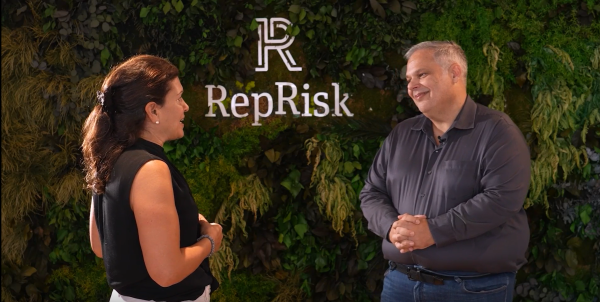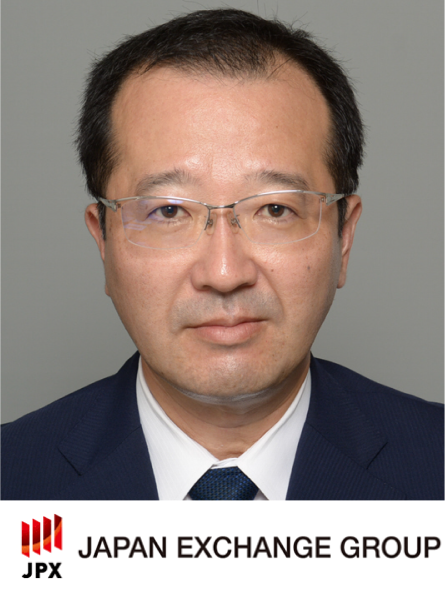# Interview with Johanna Kristina Wohlgemuth, Head of Sustainability for the Federal German Investment Guarantee Scheme at PwC Germany
1. RepRisk: Please provide a few details about your role at PwC Germany and the scope of work that you and your team are responsible for in the context of sustainability and investment guarantees.
Johanna Kristina Wohlgemuth: Investment Guarantees protect eligible German direct investments in developing countries and emerging economies against political risks. The Federal Government commissioned PwC to manage the Investment Guarantees. In my role, I am heading all sustainability related topics in our PwC team for the Investment Guarantee Scheme. This includes not only the development and implementation of our sustainability and climate strategies but also overviewing the day-to-day assessments being made regarding the environmental, social and human rights (ESHR) performance of projects seeking Federal Investment Guarantees.
2. RR: ESG, due diligence, and sustainability considerations are critical in your consultancy work. Can you elaborate on the specific factors that are most relevant to your projects at PwC, and how you ensure their integration into your decision-making processes?
JKW: Sustainability in its various dimensions is an essential aspect of foreign investment promotion by the Federal Republic of Germany. The Federal Government expects the projects benefitting from investment guarantees to adhere to relevant applicable ESHR standards. All projects seeking coverage undergo an eligibility assessment which include an in-depth analysis of the environmental, social, and human rights risks and consequences associated with these projects. To begin with, we check whether the investment requires an enhanced due diligence of ESHR aspects and which ones are particularly relevant. For this purpose, we screen for potential risks of the project to its biological, physical and social environment.
The minimum requirement for granting an investment guarantee is the fulfilment of the host country’s national standards. Investments with relevant ESHR risks are subject to a comprehensive review.
Our default benchmark are the provisions of the Performance Standards on Environmental and Social Sustainability of the International Finance Corporation and the sector-specific Environmental, Health and Safety Guidelines of the World Bank Group relevant to the investment.
3. RR: You have been working with RepRisk data since 2017. Can you share specific examples of how you have successfully integrated RepRisk’s data and metrics into your ESHR assessments of projects seeking coverage under the German Federal Investment Guarantee Scheme, and where you believe this data has made the most significant impact or added substantial value?
JKW: We begin the eligibility assessment of every application seeking coverage with a so-called screening process where we determine which ESHR aspects require an enhanced due diligence. For this first step the RepRisk data plays a crucial role, as it gives us the ability to identify which risks are especially critical in certain countries and sectors. In addition to that, the daily screening of over 150,000 public sources and stakeholders in 30 languages gives us the ability to understand the track record of individual projects, sponsors, and partners, a feature not offered by other platforms. This is especially crucial to us, as the projects we are assessing are set in developing and emerging markets and therefore might not be covered by the media in our German or European news outlets or other sources.
4. RR: The regulatory landscape around ESG is continuously evolving. How do you anticipate these changes impacting your work, and how are you staying ahead to maintain alignment with best practices and regulations both for PwC and for your clients?
JKW: In our management role of the German Federal Trade and Investment Promotion Scheme we are at the very forefront when it comes to maintaining alignment with best practices and regulations. We are being included in various expert committees such as the IFC Community of Learning or the OECCD Practioners working party on export credits and credit, which allows us to be in constant discussion with the thought leaders of our industry and share our knowledge with them.
5. RR: Leveraging technology and data analytics can be very important for advancing sustainability efforts. How do you use technology and data to enhance your sustainability efforts and ensure that the PwC Germany remains at the forefront of ESG best practices?
JKW: My focus within the German Federal Investment Guarantee Scheme represents only a fraction of PwC's extensive sustainability initiatives. To provide context, my team serves as a client to other PwC Germany teams utilizing data and technology to advance sustainability objectives. A noteworthy example is the remarkable work undertaken in GHG-accounting and climate excellence at PwC. Our colleagues played a crucial role in developing a customized GHG-calculation methodology and aiding in the baseline assessment, drawing from their extensive experience and access to cutting-edge data technology. For more details on this, you can refer to this resource.
Conclusion
In our latest interview with Johanna Kristina Wohlgemuth, Head of Sustainability for the Federal German Investment Guarantee Scheme at PwC Germany, we spoke about her role overseeing sustainability aspects within the Investment Guarantee team. The team manages projects that receive protection under Investment Guarantees, evaluating their environmental, social, and human rights (ESHR) performance. RepRisk data, utilized since 2017, plays a crucial role in the initial screening process, identifying critical ESHR aspects and providing insights into projects' track records in developing markets. The extensive analysis of over 150,000 sources in 30 languages allows RepRisk to understand the nuances of individual projects, sponsors, and partners, which may not be covered by mainstream sources. Leveraging technology and data, PwC Germany remains at the forefront of ESG best practices.
Bio - Johanna Kristina Wohlgemuth
Johanna is the Head of Sustainability in the PwC team that manages the German Federal Investment Guarantee Scheme on behalf of the German government. Johanna leads a team of E&S specialist who are not only responsible for the development and implementation sustainability and climate strategies of the Federal Investment Guarantee Scheme but also the day-to-day assessments regarding the environmental, social and human rights (ESHR) performance of projects seeking coverage under the scheme.
Johanna’s experience ranges across many geographies and sectors with a special interest in the textile supply chain. She has specialized in the screening, due diligence and monitoring of export and investment projects for adherence to international E&S standards on behalf of the German Government.
Johanna has been a speaker on ESG-related themes in various events for Financial Institutions, University/Master Programmes and the UN Forum on Business and Human Rights among else.
Johanna holds bachelor’s degrees in economics (Kiel University) and International Relations (Sciences Po Paris) and a M.A. in International Business and Sustainability from Hamburg University.



